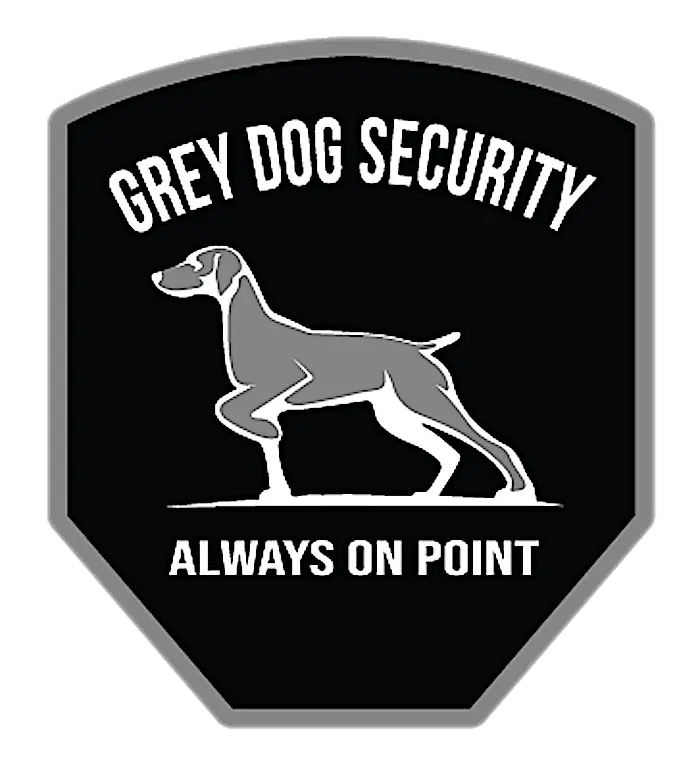Addressing Security Challenges in Assisted Living Facilities and Effective Solutions for Safety
Grey Dog Security
Author
Ensuring the safety and well-being of residents in assisted living facilities is paramount. Assisted living facilities are responsible for providing a safe environment for elderly residents, many of whom require specialized care and attention.
However, managing security in these centers presents a variety of challenges, from preventing residents from wandering to ensuring controlled access. Facility management must address these issues proactively to protect residents, staff, and property.
In this article, we’ll explore common security challenges faced by assisted living centers and provide effective solutions to enhance safety, with a focus on the role of professional security guard services, especially in West Michigan.
6 Common Security Challenges in Assisted Living Facilities

1. Resident Wandering and Elopement
One of the most significant security concerns in assisted living centers is resident wandering or elopement.
Many residents, particularly those with Alzheimer's or dementia, are prone to wander from the facility, often putting themselves in dangerous situations. This risk not only endangers the individual but also creates liability issues for the facility.
2. Safety Concerns from Unauthorized Access
One of the most pressing safety concerns in an assisted living facility is preventing unauthorized individuals from gaining access. Without advanced access control systems, facilities are vulnerable to criminal activities, including theft, harassment, or trespassing.
Ensuring that only approved visitors, staff, and care providers enter the premises is critical to maintaining a secure environment.
3. Resident Conflicts and Behavioral Issues
Many residents in assisted living communities experience behavioral challenges due to cognitive decline or frustration. When these tensions escalate, they can lead to conflicts, making it essential for staff and security personnel to intervene quickly to de-escalate situations.
4. Emergency Preparedness and Response
Facilities must be ready to respond to medical emergencies, fires, natural disasters, or other unexpected events. However, some centers struggle to maintain up-to-date emergency protocols or lack the necessary resources to ensure resident safety during an emergency.
Security personnel and staff should be familiar with emergency exits, evacuation procedures, and how to communicate with emergency responders swiftly.
5. Theft and Property Damage
Theft and property damage can occur internally, involving staff, residents, or visitors. Seniors in assisted living facilities often bring valuable personal items, making security protocols essential for preventing theft. Additionally, ensuring the protection of facility property is critical to maintaining a secure and comfortable environment.
6. Medication Security
Many residents in assisted living facilities rely on daily medications, some of which are controlled substances. Failing to secure medications can lead to misuse or theft, which not only endangers the residents but also exposes the facility to legal repercussions.
Importance of On-Site Security Personnel in Assisted Living Facilities

While technology plays a critical role in securing assisted living facilities, the presence of on-site security personnel adds an indispensable human element.
Security guard services are essential in providing direct, immediate responses to incidents, offering reassurance to residents, staff, and family members that their safety is being actively monitored and managed.
Monitoring and Patrol
Security guards conduct regular patrols throughout the facility, ensuring that all areas are safe, secure, and free from hazards. Their physical presence acts as a deterrent to unauthorized visitors or potential criminals.
In addition to routine patrols, guards can quickly respond to alarms or suspicious activities, assessing and addressing situations before they escalate.
Access Control
On-site security personnel are responsible for enforcing access control systems. While electronic systems like keycards or biometric access provide a first layer of security, guards add a level of protection by verifying identities and ensuring that only authorized individuals enter the facility.
This is especially critical in securing sensitive areas such as medication storage, medical records, and private resident quarters.
Emergency Response
During emergencies, having trained security personnel on-site ensures a swift and coordinated response. Whether it's assisting with evacuations, directing residents to safety, or liaising with emergency services, security guards play a crucial role in minimizing risks.
They are also trained in handling medical emergencies, addressing security concerns that may arise during critical situations, and ensuring that help arrives quickly while alerting healthcare staff or first responders.
They are also trained in handling medical emergencies, ensuring that help arrives quickly while alerting healthcare staff or first responders.
Visitor and Vendor Screening
Assisted living facilities see a steady flow of visitors, contractors, and vendors. Security guards serve as the first point of contact, ensuring that everyone entering the facility is authorized and complies with the facility’s security protocols.
Major Benefits of Security Guard Services in Assisted Living
1. Providing Peace of Mind
The visible presence of on-site security personnel reassures residents, staff, and families that their well-being is a top priority.
Knowing that trained professionals are available to respond to potential threats, handle safety concerns, and enforce safety measures fosters a sense of safety within the community.
2. Supporting Staff in Crisis Situations
In addition to securing the facility, security guards often work closely with staff to ensure a supportive environment for residents.
They assist in resolving disputes, de-escalating tense situations, and managing residents with behavioral issues, particularly those suffering from cognitive impairments or dementia.
Effective Solutions for Security in Assisted Living Facilities
Comprehensive Security Guard Services
In West Michigan, local security firms provide services for senior care facilities, offering both armed and unarmed guards, depending on the facility’s needs. Security guards can also patrol the grounds, assist with emergency response, and de-escalate conflicts among residents.
- Monitoring Access Points: Guards stationed at entrances can verify visitor identities and ensure proper sign-in protocols, reducing the risk of unauthorized access.
- Emergency Response: Trained guards can quickly address emergencies, whether medical incidents or external threats, offering immediate assistance until authorities or medical professionals arrive.
Wandering Prevention Systems
Implementing wandering prevention technology is a key solution for reducing the risk of resident elopement.
These systems typically include door alarms, wearable tracking devices, and surveillance cameras. Advanced systems can integrate with security guard services, allowing personnel to monitor resident movements and respond if a resident attempts to leave the facility.
Conflict Resolution Training for Staff
Equipping staff with conflict resolution skills helps prevent resident altercations from escalating. Training programs should focus on managing difficult behaviors and recognizing the early signs of agitation.
Additionally, security guards should be trained in de-escalation techniques, enabling them to manage conflicts effectively without resorting to physical intervention.
Enhanced Emergency Protocols
Facilities should regularly update and rehearse emergency procedures to ensure readiness.
This includes:
- Conducting fire drills and evacuation exercises.
- Training security staff to coordinate emergency responses.
- Establishing communication protocols that allow for quick notification of residents, staff, and emergency services during crises.
Use of Surveillance Systems

Installing surveillance cameras in common areas and at facility entry points can help deter theft and monitor for suspicious behavior.
Security guards should be tasked with reviewing surveillance footage and responding promptly to any incidents. Many assisted living facilities in West Michigan are adopting advanced video monitoring systems that offer real-time alerts for any unusual activities.
Medication Management Systems
Secure medication storage and distribution is crucial for preventing misuse. Facilities should use automated medication dispensers and implement strict inventory controls.
Security guards can work alongside nursing staff to ensure that medications are administered properly and to report any discrepancies in medication logs.
Visitor Management Solutions
Implementing a digital visitor management system can help track who enters and exits the facility, ensuring that only authorized individuals have access to residents.
Security personnel can monitor these systems, checking IDs and ensuring that the facility's visitation policies are adhered to. This reduces the risk of theft or unauthorized access by outside individuals.
Technology in Enhancing Security in Assisted Living Facilities
Technology plays a critical role in enhancing safety and security in assisted living facilities. From monitoring systems to access control solutions, adopting the right technological tools ensures that a secure environment is maintained at all times.
Automated Alarm Systems
Automated alarms alert staff and security personnel about any unusual activity or security breaches. These systems are particularly useful for detecting unauthorized access, resident wandering, and emergencies like fires or medical emergencies.
Alarms can be integrated into the facility's infrastructure to cover both indoor and outdoor areas, helping to quickly alert staff to potential dangers.
Wearable Technology for Resident Monitoring
Many assisted living communities have adopted wearable devices, such as GPS trackers and personal emergency response systems (PERS), to ensure resident safety. PERS allows residents to immediately alert staff in case of a fall, health issue, or other emergencies by pressing a button on the device.
In cases of wandering or falls, alerts can be automatically sent to staff, enabling rapid response times and reducing the risk of injuries.
Biometric Access Control Systems
A growing trend in assisted living facilities is the implementation of advanced access control systems that utilize biometric data such as fingerprints or facial recognition. These systems offer heightened security by restricting entry to authorized personnel only.
With fewer physical keys or keycards in circulation, biometric systems minimize the risk of lost or stolen access credentials and prevent unauthorized entry into secure areas like medication storage rooms or resident quarters.
Grey Dog Security is the Best Choice for Assisted Living Facility Security in Michigan Areas

When it comes to the safety and security of residents in assisted living facilities, having a reliable and experienced security provider is crucial. Grey Dog Security offers specialized services designed to meet the unique security needs of assisted living environments.
Here's why Grey Dog Security stands out as the best choice:
Specific Security Solutions
Grey Dog Security understands the specific challenges that assisted living facilities face, from resident wandering to unauthorized access. We provide customized security plans that address these risks, ensuring the safety of residents, staff, and property.
Highly Skilled Security Personnel
Our security personnel are trained to handle sensitive environments like assisted living facilities. We are equipped with the skills to manage situations involving elderly residents, including conflict resolution, emergency response, and compassionate care for individuals who may have behavioral or cognitive issues.
Comprehensive Security Coverage
Grey Dog Security offers a range of services, including monitoring and patrol, access control, emergency response, and visitor and vendor screening. These services help mitigate security risks and ensure a safe living environment for residents.
24/7 Protection and Rapid Response
Assisted living facilities require constant vigilance, and Grey Dog Security provides 24/7 protection to ensure continuous security coverage. In the event of an emergency, our team is trained to respond quickly and effectively, minimizing risks to residents and staff.
Proven Track Record
With years of experience in the security industry, Grey Dog Security has a proven track record of success in protecting vulnerable populations. Our clients trust us to deliver consistent, reliable security services that meet the highest standards.
Contact Grey Dog Security today to learn how we can enhance the safety of your assisted living facility.
Call us at 1-800-903-4110 or send us a message to schedule a consultation and discuss your security needs.
Conclusion
Assisted living facilities face a variety of security challenges, from preventing resident wandering to managing emergencies and theft. By employing trained security guard services, implementing technology solutions, and maintaining updated emergency protocols, these challenges can be effectively managed.
In West Michigan, facilities that prioritize robust security measures not only protect their residents but also create a more peaceful, safe, and welcoming environment.
Facility management must recognize the importance of combining professional security services with proactive, technology-driven solutions. This approach ensures the safety of residents while maintaining their dignity and quality of life.
FAQ: Security Challenges in Assisted Living Facilities
1. What types of security challenges do assisted living facilities typically face?
Assisted living facilities often deal with challenges like resident wandering, unauthorized access, theft, and emergency preparedness. Security concerns can also arise from visitor management and ensuring the safety of medication storage.
2. How can Grey Dog Security help prevent resident wandering and elopement?
Grey Dog Security provides skilled personnel to monitor residents and prevent elopement. Our guards patrol facility perimeters and monitor access points, ensuring residents stay within safe boundaries.
3. What role do security guards play in emergencies in assisted living facilities?
In emergencies, Grey Dog Security personnel act quickly to implement response protocols. We are trained to work alongside staff in fire drills, medical emergencies, or evacuation scenarios, ensuring residents’ safety and security.
4. Do security guards interact with residents in assisted living facilities?
Yes, our security personnel interact compassionately with residents, especially those with cognitive impairments. They help ensure safety while maintaining a respectful and caring presence, creating a secure yet welcoming environment.
5. Can Grey Dog Security offer temporary or on-demand security services for assisted living facilities?
Yes, Grey Dog Security offers flexible, temporary security services specific to the needs of your facility. Whether for an event, a staffing shortage, or increased security needs, we can provide professional security services on short notice.
© 2025 Grey Dog Security. All Rights Reserved.
Designed and Powered by WebriQ.



